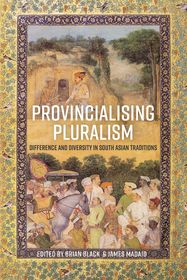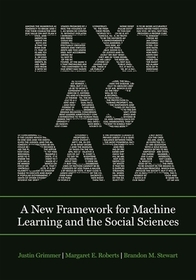
Provincialising Pluralism
Difference and Diversity in South Asian Traditions
- Publisher's listprice GBP 140.00
-
66 885 Ft (63 700 Ft + 5% VAT)
The price is estimated because at the time of ordering we do not know what conversion rates will apply to HUF / product currency when the book arrives. In case HUF is weaker, the price increases slightly, in case HUF is stronger, the price goes lower slightly.
- Discount 13% (cc. 8 695 Ft off)
- Discounted price 58 190 Ft (55 419 Ft + 5% VAT)
Subcribe now and take benefit of a favourable price.
Subscribe
66 885 Ft

Availability
Not yet published.
Why don't you give exact delivery time?
Delivery time is estimated on our previous experiences. We give estimations only, because we order from outside Hungary, and the delivery time mainly depends on how quickly the publisher supplies the book. Faster or slower deliveries both happen, but we do our best to supply as quickly as possible.
Product details:
- Publisher Bloomsbury Publishing (UK)
- Date of Publication 16 October 2025
- Number of Volumes Hardback
- ISBN 9781350436039
- Binding Hardback
- No. of pages544 pages
- Size 248x176x36 mm
- Weight 820 g
- Language English 700
Categories
Long description:
How have South Asian traditions responded to plurality and difference? The question lies at the centre of this collection, inviting us to challenge established conceptions of pluralism and understand South Asian ways of thinking about difference, diversity, and 'the other'.
This diverse collection is the first in-depth treatment of the variety of ways that South Asian traditions theorise plurality. Bringing together case studies across South Asia's distinctive religious landscape, it marks a significant contribution to re-thinking pluralism in the 21st century.
Table of Contents:
"
Table of Contents
Introduction: Brian Black and James Madaio.
Part 1: Pluralisms in Ancient South Asia
Chapter 1: Claire Maes: '""I heard it through the grapevine."" Gossip and Rumour in the Pali Canon as Strategies to Deal with Religious Others'
Chapter 2: Sonam Kachru: 'Asoka's Principled Pluralism'
Chapter 3: Mark McClish: 'Pluralism and Religious Policy in the Arthasastra'
Chapter 4: Brian Black: 'The Mahabharata's Dharmic Pluralism'
Chapter 5: Vrinda Dalmiya: 'In Defence of Double-Think: Stances, Standpoints, and Justice in the Mahabharata and Feminist Epistemology'
Chapter 6: Jessica Frazier: 'Collaboration, Inference, and Virtue in the Caraka Samhita'
Chapter 7: Anil Mundra: 'Pluralistic Selves: Jain Engagements with Doctrinal Difference and Identity'
Chapter 8: Patrick Lambelet: 'Weaving Many into One: Plurality and Unity in the Buddhist Mantrayana'
Part 2: Pluralisms in Pre-Modern South Asia
Chapter 9: Nancy M. Martin: 'Forging Self and Sampraday: Inclusion, Equality, and Religious Diversity in Pre-Modern Bhakti'
Chapter 10: Pashaura Singh: 'Religious Pluralism and the Bhagat Bani in the Guru Granth Sahib'
Chapter 11: Jaroslav Strnad: 'Plurality of Spiritual Paths in the Dadupanthi Community of 17th Century Rajasthan'
Chapter 12: Rembert Lutjeharms: 'Encounters with the Inconceivable: Experience and Inclusivism in Early Gaudiya Vaisnava Theology'
Chapter 13: Rosie Edgley and Jacqueline Suthren Hirst: 'Addressing Plurality in Madhusudana Sarasvati's Bhagavadgita commentary'
Chapter 14: Supriya Gandhi: 'Reconciling Difference Through Tatbiq: Pluralism and Comparative Religion at the Mughal Court
Part 3: Pluralisms in Modern South Asia
Chapter 15: Scott R. Stroud: 'Ambedkar, Pragmatic Buddhism, and Democratic Pluralism'
Chapter 16: Elise Coquereau-Saouma: 'Witnessing and Realising Plurality in 20th Century Indian Philosophy'
Chapter 17: Arindam Chakrabarti: 'Seesaw Worlds, Interrogative Reality, and Alternative Theories of Error: From Kalidas Bhattacharya back to Abhinavagupta'
Chapter 18: James Madaio: 'Plurality and the Other in Ramchandra Gandhi's Hermeneutics of Being'
Chapter 19: Humeira Iqtidar: 'Is Tolerance Liberal? Javed Ahmed Ghamidi and the Non-Muslim Minority'
Chapter 20: Brian Black and James Madaio: 'Concluding Reflections: Thinking Pluralistically about Pluralism'








